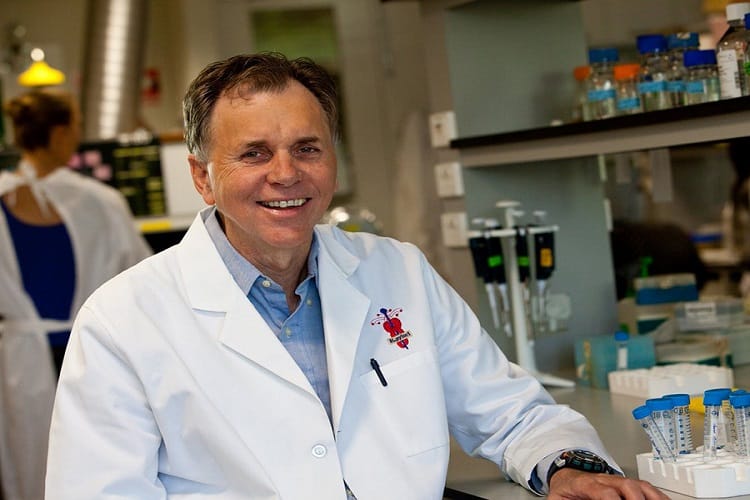Barry Marshall is an Australian physician. He was awarded the Nobel Prize in Physiology or Medicine in 2005.
Life and Career
Barry Marshall was born on 30 September 1951 (age 71 years), in Kalgoorlie – Boulder, Australia.
Barry showed an early interest in science and medicine, and this passion led him to pursue a career in the field.
Marshall attended the University of Western Australia, where he studied medicine, graduating in 1974. During his medical studies, he became interested in the bacterium Helicobacter pylori and its potential role in causing gastric ulcers.
Barry Marshall’s most significant and controversial contribution to the field of medicine came in the early 1980s when he and his colleague Robin Warren discovered the link between Helicobacter pylori and peptic ulcers. At that time, it was widely believed that stress and spicy foods were the primary causes of ulcers. Marshall and Warren’s research challenged this conventional wisdom.
In 1982, Marshall conducted a self-experiment, ingesting a culture of Helicobacter pylori to prove its role in causing gastric ulcers. He developed gastritis as a result, providing concrete evidence for their hypothesis. This groundbreaking work revolutionized the understanding and treatment of ulcers, ultimately leading to the development of antibiotics as a standard treatment for the condition.
Throughout his career, Marshall continued to research and advocate for the importance of Helicobacter pylori in various gastrointestinal diseases, including gastric cancer.
Award and Legacy
One of the most significant acknowledgments of Barry Marshall’s contributions to science and medicine was the Nobel Prize in Physiology or Medicine in 2005. Alongside his colleague Robin Warren, Marshall received this prestigious award for their groundbreaking discovery of the bacterium Helicobacter pylori and its role in causing gastric ulcers. This recognition not only honored their work but also brought global attention to the importance of their findings.
Barry Marshall’s willingness to take extreme measures, such as conducting a self-experiment by ingesting Helicobacter pylori, showcased his dedication to scientific discovery. His boldness in challenging conventional wisdom and putting his own health at risk left a lasting impression on the scientific community and inspired others to think creatively and courageously in their research.
Marshall’s research fundamentally changed the approach to treating peptic ulcers. Before his work, the prevailing belief was that stress and lifestyle factors were the primary culprits behind ulcers. However, his discovery led to the widespread acceptance of antibiotics as a standard treatment for ulcers, significantly improving the quality of life for millions of patients and reducing the need for invasive surgical procedures.
Barry Marshall’s work not only revolutionized the field of gastroenterology but also influenced the broader medical community. It highlighted the role of infectious agents in chronic diseases, challenging the traditional view that most ulcers were primarily caused by non-infectious factors. This shift in perspective paved the way for further research into the connections between infections and various health conditions.
Marshall’s journey from a self-experiment to receiving the Nobel Prize serves as an inspiration to aspiring scientists. His story underscores the importance of persistence, curiosity, and a willingness to question established beliefs in scientific endeavors. Many researchers and students look to him as a role model for pushing the boundaries of knowledge.

